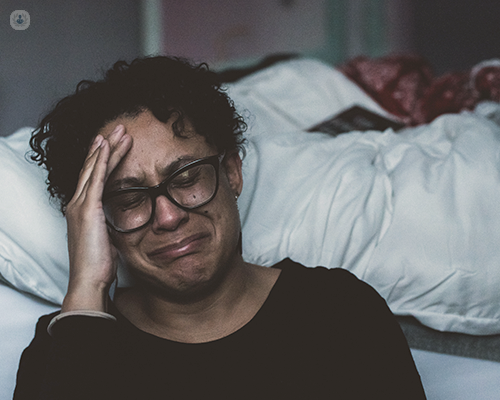Post-traumatic stress disorder (PTSD): who does it affect?
Autore:If you, or someone you know, has experienced a truly traumatic event, you may have post-traumatic stress disorder (PTSD). This can result in behaviour that negatively impacts general health and the quality of daily living. Dr Lars Davidsson explains who can be affected, the symptoms and what to do regarding treatment. He also addresses complex PTSD and medico-legal assistance.

Who gets affected by PTSD?
Everyone who has a been a victim of trauma of a big enough magnitude can suffer from PTSD. It can affect anyone, regardless of age or gender.
The impact of trauma and how people react to it varies, so it’s very difficult to express what the magnitude of trauma is. An event that is highly traumatic for one individual may not be so traumatic for another.
What kind of events causes PTSD?
Generally, a PTSD-causing event is a life-threatening situation. This could be in the form of a car accident or accidents at work.
However, there are instances where people react similarly to a non-life-threatening event, such as the death of a family member. I have seen people react badly to something like the death of a pet and require psychiatric help.
Can any kind of job bring on PTSD symptoms?
Commonly, jobs where you come into contact with violent situations can bring on PTSD symptoms. Police, ambulance, fire brigade and A&E staff often face dreadful situations that are traumatic to witness.
What are the symptoms of PTSD and how does it affect a person?
The core symptoms of PTSD are:
- difficulty falling asleep and/or not sleeping much at all (insomnia)
- having nightmares about the incident
- ruminating thoughts about the traumatic event
- avoidance behaviour
- not putting yourself in similar situations (like not driving after a car accident)
Comorbidity is the clinical term for when one person experiences additional conditions along with their core condition. In the context of PTSD, comorbidity can exist in the form of a sufferer also experiencing conditions like depression, anxiety or substance abuse, to name a few examples.
One thing that often really affects people is the avoidance part of PTSD. People can avoid doing certain things like driving after a car accident, going to a certain place after an event or even crossing the street after an accident. If you have severe anxiety, you may not even leave the house.
If you, or someone you know, is suffering from any of the previously mentioned symptoms, you should seek help to overcome these.
Is Complex PTSD different?
Complex PTSD is quite a new term. One simplified way to define complex PTSD is something that results from trauma over months or years rather than a singular event.
Many people have lived through terrible childhoods and/or adult lives. Anyone who has been traumatised during childhood due to abuse, for example, could show delinquent behaviour at an early age. Someone with complex PTSD may function well but suffer from substance abuse and/or delinquent behaviour.
In my experience in working with addicts, I have seen that most people who are addicted to drugs or alcohol do have negative experiences from their upbringing.
What are some tips for people to make a smooth transition back to regular life?
Seek treatment, that is the first thing. The symptoms they have are real, hindering them in their daily lives and making them much less functioning than they otherwise would be. A medical professional can make a diagnosis, provide a treatment plan and offer a long-term solution based on individual needs.
The waiting list for psychotherapy on the NHS is usually very long. This is why private treatment for mental health conditions is a popular option. If you want or need to resolve your issues now, I would suggest private care for immediate treatment.
Medico-legal aspect
Some people worry about the cost of private healthcare. There is a small percentage of people who may be able to partly finance it buy getting compensation. If you are the victim of an accident (like a car or work-related accident), there is sometimes the possibility of seeking compensation for symptoms that result from it. See a solicitor and discuss your case.
At the Anglo European Clinic, we provide medico-legal reports as well as the utmost attention and care to your wellbeing.
Remember, if your life is being affected by any of the aforementioned symptoms and, as a consequence, your life and general wellbeing are impaired, seek professional help as soon as you can.
Dr Lars Davidsson is a highly respected and trusted psychiatrist with expertise in all areas of psychiatry, including PTSD, anxiety, depression and addiction. Learn how he can help you and get in touch with him via his profile.


